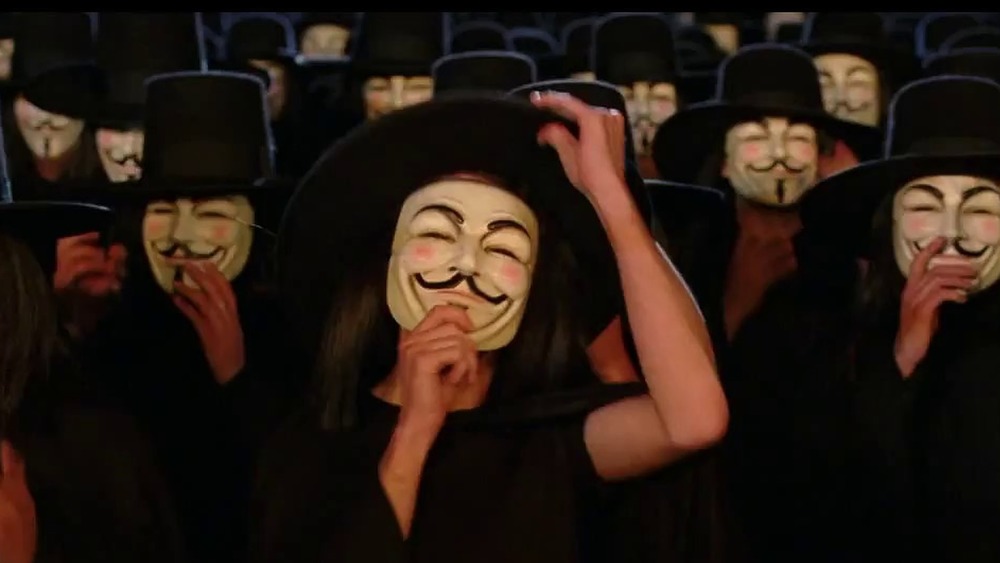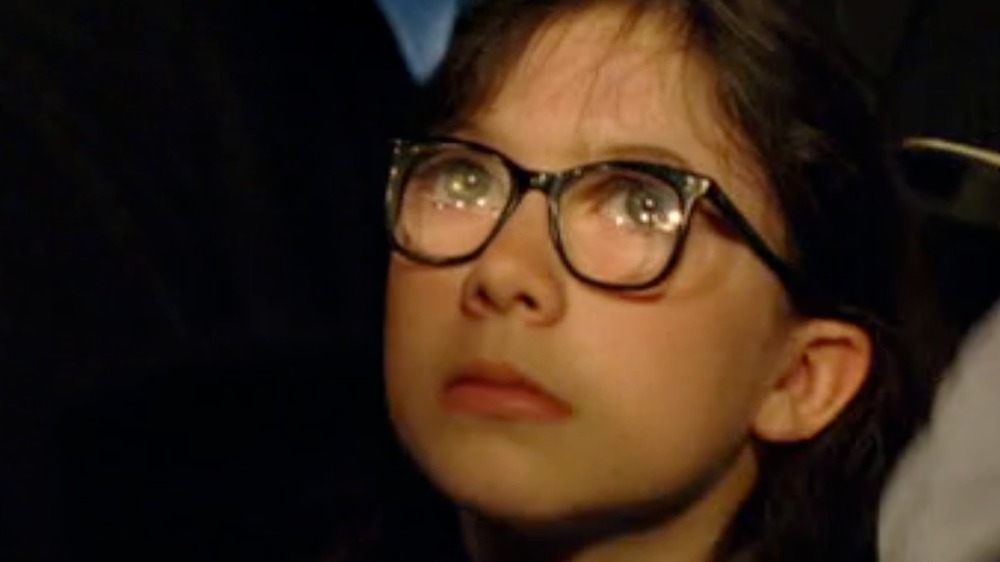What The Unmasking Scene In V For Vendetta Really Means
Crusading against the fascist police state of the alternate-universe United Kingdom, the Guy-Fawkes-mask-wearing "V" in 2006's V for Vendetta is the embodiment of his ideals, which are much harder to kill than the body itself. Judging by the final scene, however, the body isn't that easy to kill, either. As the bombs go off and Parliament is destroyed, the inflamed citizens in the crowd, who have marched to the Houses of Parliament by the thousands, remove their own Guy Fawkes masks to watch.
But the always-eagle-eyed Reddit community was quick to point out that among that triumphant crowd were the faces of characters we know have died: Valerie, Ruth, and the little girl in glasses who was shot earlier in the film. Considering the surreal tone of the film and V's at times seemingly supernatural powers of stealth, combat, and omniscience, it's conceivable for viewers to wonder whether these faces represent an inexplicable evasion of death, or whether their appearance has a more symbolic meaning.
If these characters are meant to canonically be present in the crowd, it raises a lot of questions. Are they ghosts? While there is little precedent for this in the film, at the same time it wouldn't seem out of place. Have they been brought back to life by some futuristic means, or were their deaths misrepresented somehow, and they have returned now that the threat to their lives has been neutralized? Maybe, one fan surmises, they're just extras in the scene.
Evey really meant, 'All of us'
None of these theories seem genuinely likely, and would certainly require too much explaining. Instead, fans seem to opt for a symbolic reading that honors the freedom to think for oneself that the film itself fights for. One Redditor, commenting on the same post, noted that the revolution belonged even to those who hadn't made it, and that those people, along with the people they left behind, were finally free of the dystopian life they had been living.
Another viewer took it even further, suggesting that because V was the collective idea of freedom and revolution, each member of society, living or dead, had been a part of him. In this way, he could not have been who he was without each and every one of them. Their triumph in the vendetta against oppression, and against their own fear, was the work of a unified hope that sprang from each individual.
So when Evey says, "He was all of us," this means that each person was V as well, and through their collective manifestation of the ideals he represented, they also embodied each other. An homage to V's masked persona, they employed a sort of mutual anonymity of their own that stood for their universal rights. The dead lived on in the commitment of the living to the justice every one of them deserved.

